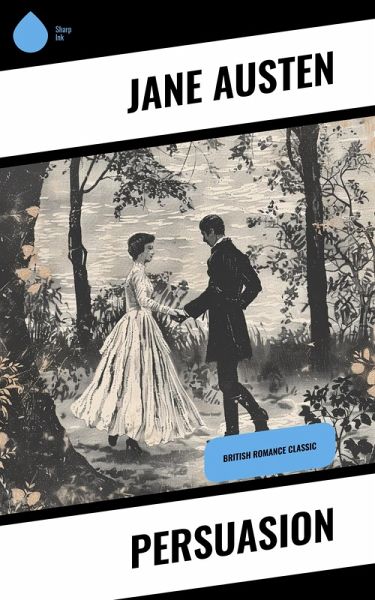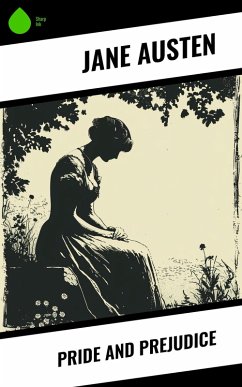
Persuasion (eBook, ePUB)
British Romance Classic

PAYBACK Punkte
0 °P sammeln!
In Jane Austen's "Persuasion," the author masterfully explores themes of love, regret, and second chances within the rigid social hierarchies of early 19th-century England. The narrative centers around Anne Elliot, a woman who grapples with her past decision to reject the love of Captain Frederick Wentworth, only to find her feelings reignited years later. Austen's prose blends wit and keen psychological insight, employing free indirect discourse to delve deeply into Anne's internal conflicts, which reflects her unparalleled ability to capture the intricacies of human relationships against the...
In Jane Austen's "Persuasion," the author masterfully explores themes of love, regret, and second chances within the rigid social hierarchies of early 19th-century England. The narrative centers around Anne Elliot, a woman who grapples with her past decision to reject the love of Captain Frederick Wentworth, only to find her feelings reignited years later. Austen's prose blends wit and keen psychological insight, employing free indirect discourse to delve deeply into Anne's internal conflicts, which reflects her unparalleled ability to capture the intricacies of human relationships against the backdrop of societal expectations. The novel stands out as Austen's final completed work, characterized by a tone of maturity and reflection, diverging from the youthful exuberance seen in her earlier novels. Jane Austen, born in 1775, was a pioneering novelist whose intimate knowledge of the gentry informed her depictions of domestic life and social maneuvering. Her own experiences with love and loss, alongside the challenges faced by women in her time, undoubtedly shaped the poignant narrative of "Persuasion." The novel reflects Austen's contemplation on the complexities of human emotion and societal constraints, encapsulating her belief in the transformative power of genuine love and understanding. "Persuasion" is highly recommended for readers who appreciate nuanced character development and a reflective narrative. It serves not only as a romantic tale but also as a critique of social mores, making it a rich study for those interested in literature's intersection with social commentary. Austen's final testament resonates with timeless relevance, confirming the enduring nature of love and the significance of personal agency.
Dieser Download kann aus rechtlichen Gründen nur mit Rechnungsadresse in A, B, BG, CY, CZ, D, DK, EW, E, FIN, F, GR, HR, H, IRL, I, LT, L, LR, M, NL, PL, P, R, S, SLO, SK ausgeliefert werden.













